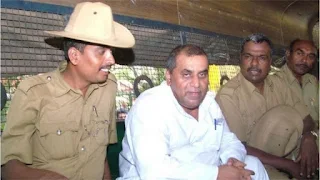Written and directed by Patrick Graham
At one look, it sounds like a case of mismatched personalities from totally different backgrounds coming together in the name of love. This case also reminds us of India's past history, about the Diwans, the aristocrats, and the vibrant Shia-Persian community in Karnataka and the fact that India is not quite a homogenous society but one rich with a plurality of cultures and societies. It takes a peek into the life of the rich and famous ambassador and the type of life the family once led.
Shakereh Khaleeli nee Namazie was a high-spirited 19-year-old member of the rich and elite of India when she was married off to her first cousin, Akbar Mirza Khaleeli. Their grandfather was Sir Mirza Ismail, the Diwan of Mysore. Albar was a diplomat, an envoy to Iran and many other places later. Shakereh was the live wire of all parties and was a born socialite. They went on to have 4 daughters.
With the Iranic Revolution, Sharkereh returned to India whilst Akbar stayed behind to continue his ambassadorial duties. She involved herself in the family construction business.
Murali Manohar Mishra, aka Swami Shradhananda, came to know the couple around 1982. By 1985, Shikereh unilaterally proclaimed divorce in front of an audience at a mosque after failing to obtain her husband’s talaq. It is said that the Shradhananda, who is not a saintly man but one who proclaimed to have special powers, promised Shikereh a son. They got married in Hindu tradition and lived in Bangalore.
Her action became the talk of the community then. A Shia-Parsi woman of a reputable family marrying a Hindu from a poor background and living as a Hindu was scandalous enough. Her daughters, though, maintained continued telecommunication with their mother. They were then living in Italy with their father.
In 1991, the second daughter filed a police report for failing to contact her mother. The police were dragging their feet until a habeas corpus case was put up. In 1994, the police managed to get a confession from the Shradhananda. The remains of Shakereh were unearthed within the confines of her home.
The story says that the couple did have a stillbirth. The gender of the child is not mentioned. There were frequent tiffs between them regarding her close communication with her daughters. Shradhananda, the ever-subservient one, started demanding his role as a husband. He had also managed to get himself the power of attorney to all her properties.

The case shocked the nation. In 1994, the mystery was solved. Shradhananda led the police to the body. The exhumation work was videographed and accepted as evidence. Clawing marks from the inside of the box suggested that she was buried alive. DNA confirmation was used for the first time in India.
It sounds like a cut-and-dry case of a purportedly holy man befriending the rich, gaining the trust of the lady of the house, winning her heart, her hand and subsequently, her property. When the mission was accomplished, she was eliminated. Despite being found guilty by a total of eight judges, Shrahananda's lawyer insists evidence against him is circumstantial. The series gives the defence state their arguments which appear to be mostly harping on technical issues.
But despite the fact that he was found guilty by a total of eight judges from India's trial court, the high court and the Supreme Court, his lawyer insists that the evidence against him at best is circumstantial - and in the web series, we hear from Shraddhananda himself who admits his guilt. Still, at the time of the crime, he just wanted to cover his misdeed and get scot-free.
The miniseries helps to bring out this case to the mainstream, the viewing public wants to know more. They want the story to be built up as if an actual investigation is ongoing. The mental state of Shakireh for wanting to leave her beautiful family and go off with an obviously less erudite than her, and her worldly exposure is not explored.








